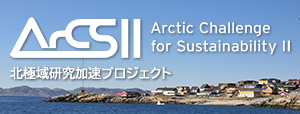On 20 September 2022, HU ARC Monthly Seminar was held as a hybrid event. It featured two speakers. First, Dr. Evgeny Podolskiy shared his field experience in a presentation “Summer with narwhals, the unicorns of the sea”, offering the audience a rare chance not only to see these elusive creatures but also hear their song. Next, Marina Lomaeva told about her long personal and academic involvement with the North and the Arctic and her joint research with Juha Saunavaara, Assistant Professor at HU ARC, on the role of non-state actors in conservation and management of the Northern fur seal and other marine life in the North Pacific (involving Japan, Russia, the US and Canada) and in Hokkaido and Japan’s Arctic engagement.


| Date & Time | Tuesday, September 20, 2022, 15:00-16:30 |
| Place | Seminar Rooms B and C, Sousei Bldg. 4F |
| Method | Hybrid | Participant | 20 people (including 13 online) |
| Lecturer 1: Evgeny Podolskiy (ARC) Presentation Title: Summer with narwhals, the unicorns of the sea Abstract: Many people do not even realize that there is such a mysterious creature, a small whale called narwhal. Due to extremely narrow cold-habitat preferences, this endemic Arctic mammal is considered one of the most susceptible to climate change. Will narwhals disappear before we even understand them? To learn more about the largest subpopulation of narwhals in Greenland, this summer I traveled to the northwest part of the island for fieldwork. I use this opportunity to tell you about my recent and ongoing studies on narwhals and their icy habitats. |
|
| Lecturer 2: Marina V. Lomaeva (ARC) Presentation Title: Marine living resource management in the North Pacific and the role of non-state actors: The case of the Northern fur seal Abstract: The North Pacific is a region rich in marine living resources, which have been the object of conflict and cooperation between its coastal states: Japan, Russia, the United States, and Canada. Since the late 19th century, international regimes for conservation and management of the Northern fur seal, salmon and trout, and walleye pollock in the Bering and Okhotsk seas have emerged in that region. As Putnam’s “two-level game” metaphor suggests, negotiations for these regimes had to be conducted simultaneously at the international and domestic levels. For instance, with respect to the fur seal, at the international plane, the US and Russia with jurisdiction over the breeding islands had to convince Canada and Japan with pelagic sealing fleets to submit to regulations in exchange for a share in profits from land sealing. At the domestic level, each state had to interact with its non-state actors, such as sealing and fishing companies, social activists representing the early environmental movement, and scientists (who had very divergent views on factors affecting seal populations). In view of a growing recognition of the role of non-state actors, the well-documented history of the fur seal regimes offers a good opportunity for a case study of the previously overlooked role of non-state actors in the creating, developing and dismantling marine wildlife conservation and management regimes (particularly, its understudied Northwest Pacific part, involving Japan and Russia). This case study will also provide a glimpse into regional environmental governance mechanisms in the North Pacific. |
|








